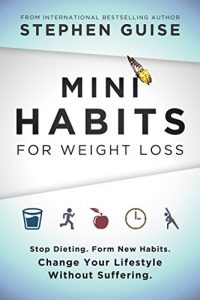Imperfectionists Accomplish More with Less Stress
I remember when I aimed for perfect workouts: 30 minutes was the minimum.
I was in lousy shape.
I remember when I aimed for perfect dating: it couldn't be awkward, forced, or uncertain.
I didn't talk to women of interest.
I remember when I aimed for perfect writing: I wanted 1,000+ words of quality material per day.
I played video games instead.
I carefully avoided mistakes, endlessly ruminated about what I didn’t do, and what I did do wasn't enough.
Then, I became an imperfectionist.
Everything changed. I had fun stories to tell, like the lesbian pizza incident and the most nervous “Hi” ever spoken by a human being. I learned more. I laughed more. I lived more.
I got in great shape, read more books, and improved my social skills. I wrote Mini Habits, which became an international bestseller, and is being translated into a dozen languages.
I found I could mess up and still win.
What's the New Way to Cure Perfectionism?
The old way was to persuade people to “let go” of their need for perfection and hope they can do it.
The new way is to persuade people to take simple, but highly-strategic actions, which let them effortlessly experience the process of “letting go" of perfectionism. Over time, these behaviors become habitual and the changes last.
The old way was to tell perfectionists fight against and resist all perfectionistic thinking.
The new way is to utilize the perfectionist's current desires by redirecting them to healthier applications, resulting in more success with less stress.
The old way is based on popular but ineffective traditions of behavioral change, such as motivation-driven living, emotional manipulation, and an overall focus on the self instead of strategy.
The new way starts with a deep understanding of how emotion, motivation, fear, action, ambition, desire for comfort, desire for safety, and our insecurities interact with one another to push us to a default state of perfectionism. Which of those factors do we focus on to reverse perfectionism? Well, you've got to read the book to find out the best strategies!
What You'll Discover
- The lesser known, but most damaging form of perfectionism almost every person has
- A simple-to-apply technique to have unshakable confidence
- Why perfectionism hurts performance, and the rare exception where it helps
- Detailed and customized solutions for these five subsets of perfectionism: need for approval, rumination, unrealistic expectations, concern over mistakes, and doubts about actions
- Fun illustrations with a powerful message to begin each chapter
- ...and much more!
Imperfectionism Is Freedom
Perfectionism is a naturally limiting mindset. For example, kids are taught to color inside the lines, and any color outside the lines is considered a mistake that must be corrected. Imperfectionism frees us to live outside the lines, where possibilities are infinite, mistakes are allowed, and self-judgment is minimal.
While the freedom from imperfectionism is impactful, it does not preclude us from having problems. Imperfectionists aren’t so ironic as to have perfect lives, they’re just happier, healthier, and more productive at doing what matters. If that sounds good to you, take the first step into imperfectionism and start reading How To Be An Imperfectionist right now!









